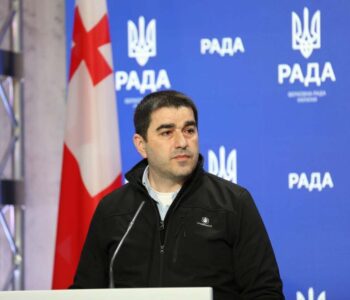On Wednesday, April 3, the ruling GD party announced it would reintroduce a “foreign agent” bill, which was passed in a first hearing in 2023 but subsequently withdrawn following widespread protests and international criticism. On April 8, the Georgian Parliament’s Bureau formally registered the bill under the title “Transparency of foreign influence”. This move breaks the assurances given last year by Georgian Dream officials that there would be no reintroduction or reconsideration of the legislation.
While the government claims that the bill is necessary to increase the transparency of funding of independent media and non-governmental organizations, we are gravely concerned that this law provides the authorities with a powerful tool to discredit and curtail independent voices, threatening press freedom and freedom of expression. “Foreign agent” laws not only affect the media or NGOs directly designated as such; they also produce a chilling effect on the right to seek and receive information and on participation in public affairs.
In comparison to the text proposed by GD in 2023, the new version of the law would only change the way that organizations receiving foreign funds, including media outlets, are labeled, from “agents of foreign influence” to “organizations pursuing the interests of a foreign power”. Aside from this wording, the law would otherwise maintain the same excessive powers to interfere in the work of such organizations.
According to the draft law, upon its adoption, foreign-funded organizations would have two months to register themselves as “organizations pursuing the interests of a foreign power”, and submit annual financial declarations on funds received from foreign sources. Failure to register would be an administrative offence, punishable by fines of up to 25.000 GEL (approximately 8.700 EUR). The law also authorizes the Ministry of Justice to conduct “thorough investigations” of the organizations to ensure their respect of the law.
Overall, the proposal does not withstand scrutiny from the perspective of media freedom, and more broadly, the rights to freedom of association and expression. The vague pretext of financial transparency alone does not constitute a recognized legitimate aim to impose additional labeling, registration, or reporting requirements. Additional responsibilities and bureaucratic demands accompanying the “foreign agent” status disrupt the regular operations of NGOs and the media, counteracting their civic and journalistic functions. Such measures discriminate against certain organizations based on their funding sources and create unjustified restrictions.
Draft law met with harsh criticism
The bill has elicited extensive criticism in Georgia, including from President Salome Zourabichvili, who accused the government of ‘sabotaging’ the country’s EU membership bid.
When Georgia was granted EU candidate status in 2023, it committed to implementing numerous democratic reforms, including creating and enabling an environment for free and independent media. Given the ample criticism of the bill from EU representatives, the current bill would likely jeopardize the country’s prospects to join the EU.
Georgian online media outlets promptly issued a joint statement condemning the initiative and promising to fight against its adoption. “The main goal of the ‘Russian law’ is to destroy independent public and media organizations, suppress freedom of speech, and establish total control over public opinion,” read the joint statement. Later, on April 8, over 400 Georgia-based media and non-governmental organizations signed a statement condemning the bill.
“Foreign agent” laws spreading throughout the region
The legislation proposed by Georgian Dream is presented by its critics as inspired by Russia’s “foreign agent” law, which since its adoption in 2012 has evolved into a primary tool for suppressing Russian civil society, and press freedom in particular.
When it was first adopted in 2012, Russia’s “foreign agent” law was also presented as a mere list of entities financed from abroad. However, legislation evolved over the following decade to become a tool excluding journalists, media, and a range of other civil society organizations from playing an active role in society. Today, any organization, media, or private individual can be designated as a “foreign agent” for receiving funding of any amount from abroad, or because they are considered to be “under foreign influence” by Russia’s Ministry of Justice.
Worryingly, Russian-style legislation is increasingly gaining traction in neighbouring countries. On April 2, Kyrgyzstan’s president signed a law on “foreign representatives” obliging non-profit organizations, including media outlets, to designate themselves as “foreign representatives”, and submit regular financial reports and audits.
In February of this year, the “foreign agent” law was among 43 other bills proposed for voting in the parliament of Abkhazia, a separatist-occupied breakaway region in Georgia, as part of an ongoing effort to ‘harmonize’ Russian and Abkhazian legislation.
MFRR partners fear that the proposed legislation by the Parliament of Georgia could severely undermine independent journalism, as well as the rights to freedom of expression and association, in the country. We stand in full solidarity with independent journalists and press freedom defenders in Georgia, and reiterate our call to the authorities to refrain from adopting the proposed legislation.
 Event
Event



